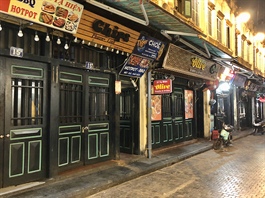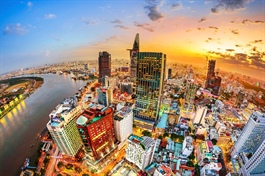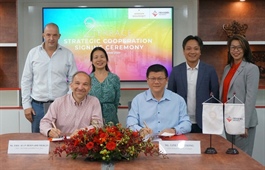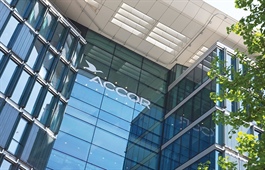Phu Quoc real estate market to revive through new city status
Phu Quoc real estate market to revive through new city status
In early August 2020, after considering comments from voters, the management of Kien Giang province in the Mekong Delta submitted to the government a plan to turn Phu Quoc Island district into Phu Quoc city. Will the changes lend new vitality to the island district’s real estate market and what segment will be the apple of investors’ eye?
An Thoi ward – the centre of a future metropolis
In light of the plan, Phu Quoc city will have a natural area surpassing 575 square kilometres (the same size as Singapore), encompassing the two wards of Duong Dong and An Thoi, and six communes. Hon Thom commune will later be merged to An Thoi ward.
As central urban subzones, Duong Dong and An Thoi will play the growth engine driving the development of the whole city. Along with this, with more than 2,518 hectares of space, Duong Dong will become an administrative centre as well as a gateway for international exchange, with an estimated population of 240,000 people by 2030.
Meanwhile, with an area of more than 1,000ha, An Thoi (after including Hon Thom) is set to become a world-class port urban area, a trade, tourism, light industrial development hub, as well as a cultural and historical centre closely attached to local tradition, with a population of more than 70,000 people.
The plan aims to expand the urban space in Phu Quoc, with An Thoi stretching to the southern pole of the island to encompass what is currently Hon Thom commune.
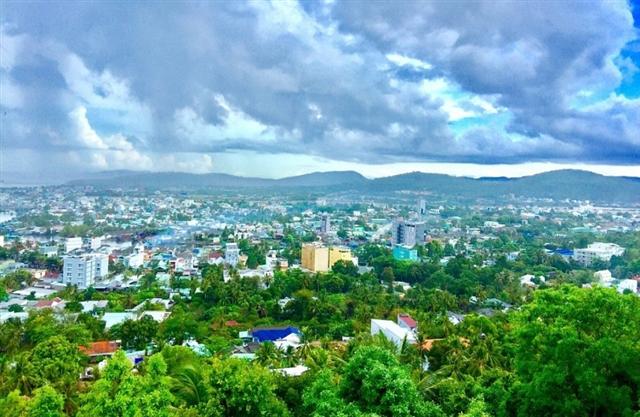
After turning into a city, Phu Quoc’s urban space will undergo far-ranging changes
|
As for population scale, with the orientation to become an island city, Phu Quoc is expected to hail several dozens of thousands of people moving from the mainland, as well as thousands of experts and management teams from foreign players doing business on the island.
The population scale of Phu Quoc would amount to about 510,000 people by 2040 and 680,000 people by 2050.
Expanded urban space, fast-paced urbanisation, and a jump in population will inevitably lead to rising demand for urban housing.
Second investment wave incoming
The enhanced status that would come with the proposal is expected to bring vitality to the development of the “Pearl Island”. With its new status, Phu Quoc would keep abreast of major cities in the region like Singapore, Phuket (Thailand), Bali (Indonesia), Malacca (Malaysia), or Danang and Nha Trang (Vietnam).
New orientations would entail fresh investment attraction. In fact, since 2014 the island was recognised as a Grade 2 urban area and intensive investment amounting to hundreds of millions of US dollars has been channelled into local infrastructure development.
| With its new status, Phu Quoc would keep abreast of major cities in the region like Singapore, Phuket (Thailand), Bali (Indonesia), Malacca (Malaysia), or Danang and Nha Trang (Vietnam). |
Of this, more than VND5.8 trillion ($252 million) was spent on the transport system, VND2.4 trillion ($104 million) on the power system, over VND1.6 trillion ($69.5 million) on building the international marina, and more than VND3 trillion ($130 million) on the airport expansion.
Until now, Phu Quoc has allured more than 300 projects covering nearly 11,000ha of space, 47 of which are operational and 71 are under construction. Total committed capital surpasses $16 billion, nearly double the total FDI volume in the Mekong Delta. Most of the projects are in tourism and marine economic development.
Most leading local players have made forays in Phu Quoc, such as Vingroup, Sun Group, BIM Group, and CEO Group to name but a few. Leading hotel brands worldwide like InterContinental, Park Hyatt, Marriott, Wyndham, Accor Hotels, Novotel, and Pullman have also made inroads in the island. Most recently, the investment plan of a project to build a duty-free area on the island has got the thumbs-up.
As the first island city in Vietnam, Phu Quoc would soon welcome an influx of investment into its infrastructure, healthcare, education, urban landscaping, and environment. The planned urban space expansion would help charm investment into other associated fields. Its upgraded status as a city is also expected to create a turnaround in the island’s economic structure as well as the cultural and spiritual life of the islanders.
Urban real estate to become centre point
In the eyes of experts, with Phu Quoc rising to a city status, improved standards of living would inevitably lead to soaring demand for upscale living spaces with modern utilities. On the other hand, with perfect living conditions and a new operational mechanism, Phu Quoc will soon go beyond its current status as a tourism destination to grow into a “livable tourism city”.
Significantly, the development planning of Phu Quoc city would accommodate three urban areas: Duong Dong centre, Nam An Thoi new urban area, and Bac An Thoi new urban area.
With Phu Quoc approaching the target of becoming Vietnam’s first island city, investors might re-navigate their investment targets into urban real estate development, instead of resort real estate as in the past when investors had the vision for the island to become a new resort paradise in Asia.
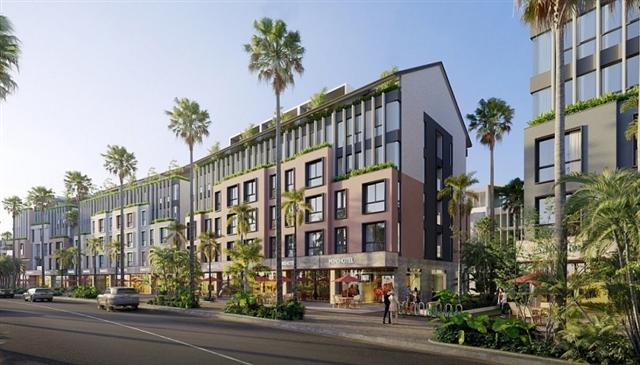
Under the development plan of Phu Quoc city, Meyhomes Capital Phu Quoc will be located in Bac An Thoi new urban area
|
The multi-colour tropical island city Meyhomes Capital Phu Quoc of developer Tan A Dai Thanh-Meyland Group is part of Bac An Thoi new urban area.
The project kicked-off construction in November 2019 and has strictly observed its schedule. According to the developer, Meyhomes Capital Phu Quoc will be a truly modern metropolis to live, to relax, and to trade. The area is also a new economic, cultural, and financial centre south of Phu Quoc city.



